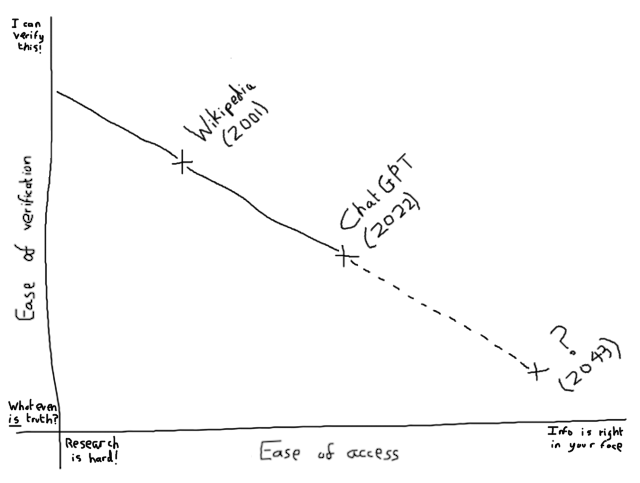Humans invented Wikipedia, which made accessing information highly-convenient, at the risk of questions about its authenticity1.
Then humans invented GPTs, which made accessing information even more-convenient2 at the expense of introducing hallucinations that can be even harder to verify and check.
Is humanity’s long-term plan to invent something that spews complete nonsense that’s simultaneously impossible to conclusively deny?3
Footnotes
1 I’m well aware that in many subject areas Wikipedia routinely outranks many other
sources for accuracy. But the point remains, because you’ve no idea what the bias of randomuser123 is; even if you check the sources they cite, you don’t know what
sources they omitted to include. I love Wikipedia, but I can’t deny its weaknesses.
2 Sure, ChatGPT and friends aren’t always more-convenient. But if you need to summarise information from several sources, you might find them a more-suitable tool than those which came before. Why do I feel the need to add so many footnotes to what should have been a throwaway comment?
3 Actually, now I think about it, I’m confident that I can name some politicians who are ahead of the machines, for now.

0 comments